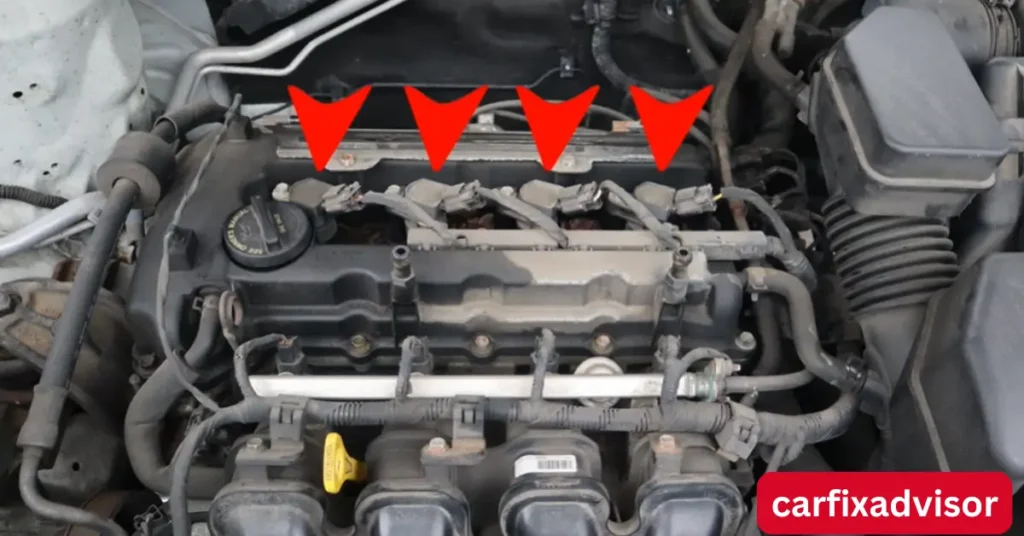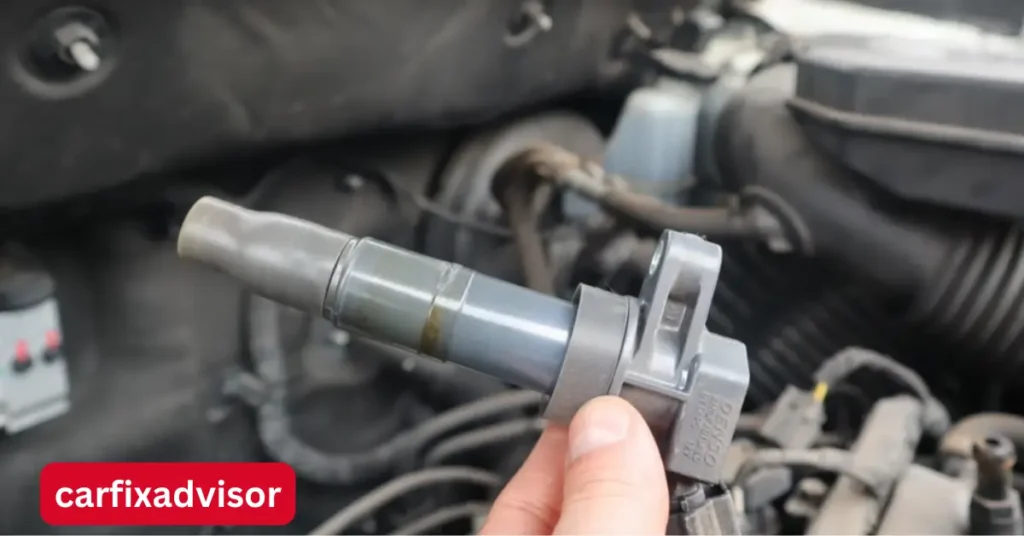The benefits of changing ignition coils reach far beyond fixing a single faulty component. Ignition coils are essential parts of your vehicle’s ignition system. They transform low battery voltage into the high voltage needed to ignite the fuel-air mixture inside the engine cylinders. Knowing when to replace ignition coils and understanding the full benefits of changing ignition coils can help you avoid engine misfires, improve fuel efficiency, and save on expensive repairs down the line.
In this article, you will gain a deep understanding of ignition coil replacement, learn how ignition coils function, recognize common ignition coil symptoms, and discover why timely ignition coil replacement matters for your vehicle’s performance and longevity.
What Are Ignition Coils and How Do They Work
Ignition coil
A component that converts low voltage from your car’s battery into the high voltage spark needed to ignite fuel.
Spark plug
The part that uses the high voltage from ignition coils to create a spark for combustion.
Coil pack
A unit containing multiple ignition coils serving several cylinders in modern cars.
How Ignition Coils Operate in Your Vehicle
● Ignition coils take low voltage power from the battery.
● They increase this voltage to tens of thousands of volts.
● The high voltage spark travels to the spark plugs.
● Spark plugs ignite the fuel-air mixture, powering your engine.
When ignition coils fail or weaken, your engine may misfire or run poorly. Recognizing ignition coil symptoms early allows for timely ignition coil replacement and lets you enjoy the full benefits of changing ignition coils.
Common Ignition Coil Symptoms
Spotting issues early helps you plan for ignition coil replacement and get the most benefits of changing ignition coils. Watch for these common signs of failing ignition coils:
● Engine idling roughly or misfiring
● Loss of power or hesitation when accelerating
● Trouble starting the engine or engine stalls
● Check engine light turning on unexpectedly
● Decreased fuel efficiency and increased exhaust emissions
● Loud noises or backfiring from the engine
Experiencing these ignition coil symptoms means it’s time to consider ignition coil replacement. Delaying can lead to bigger problems and reduce the benefits of changing ignition coils.
Why the Benefits of Changing Ignition Coils Matter
Replacing faulty ignition coils offers much more than just getting your car started again. The key benefits of changing ignition coils include:
● Restoring consistent and strong sparks for better combustion in all cylinders.
● Improving engine smoothness and responsiveness for a more enjoyable drive.
● Enhancing fuel efficiency by ensuring the fuel burns completely.
● Lowering harmful emissions by reducing unburned fuel escaping into the environment.
● Protecting other costly engine parts, like catalytic converters, from damage caused by misfires.
● Preventing sudden breakdowns and costly emergency repairs.
These advantages show how important timely ignition coil replacement is for your vehicle’s health and your peace of mind.
When to Replace Ignition Coils
Knowing the right time for ignition coil replacement is critical to maximizing the benefits of changing ignition coils. Generally, ignition coils last between 100,000 and 150,000 miles, depending on driving habits and maintenance.
You might wonder if you should replace all ignition coils at once or only the faulty one. For newer vehicles with fewer miles, changing just the malfunctioning coil is usually enough. However, if your vehicle has high mileage or multiple coils show signs of wear, replacing all ignition coils can provide balanced engine performance and prevent future failures.
Another consideration is the cost of labor. Ignition coils in some engines can be hard to reach, so mechanics may suggest replacing all coils simultaneously to save on labor fees if one coil fails. When access is easy, you can replace only the faulty ignition coil and still enjoy many benefits of changing ignition coils.
Tips to Maximize the Benefits of Changing Ignition Coils
● Choose high-quality OEM or reputable aftermarket ignition coils for reliability.
● Avoid mixing different brands or types of ignition coils in your vehicle.
● Use proper diagnostics to pinpoint which ignition coils need replacement.
● After replacement, clear any engine codes and reset the vehicle’s computer for smooth operation.
Cost Considerations for Ignition Coil Replacement
Replacing ignition coils involves costs that vary based on the number of coils and labor required. Replacing a single ignition coil can cost significantly less upfront but may require repeat visits if others fail later. Replacing all ignition coils at once is more expensive initially but can save money and hassle over time.
Understanding these cost factors helps you make informed decisions about ignition coil replacement and fully appreciate the benefits of changing ignition coils.
Benefits of Changing Ignition Coils
Continuing from the basics of ignition coils and why timely replacement is crucial, let’s dive deeper into the practical benefits of changing ignition coils. Understanding these advantages can help you keep your engine running smoothly and prevent unexpected breakdowns.
How Changing Ignition Coils Improves Engine Efficiency
When ignition coils fail or weaken, the spark strength drops. This weak spark causes incomplete combustion of the fuel-air mixture, leading to wasted fuel and poor engine performance. Here’s how changing ignition coils restores engine efficiency:
● Provides strong, reliable sparks for each cylinder.
● Ensures fuel burns completely, maximizing power output.
● Prevents engine misfires that waste fuel and lower mileage.
● Supports smoother idling and better throttle response.
These improvements translate into noticeable changes behind the wheel—your car will accelerate better, idle more smoothly, and use fuel more efficiently. That’s a direct payoff from the benefits of changing ignition coils.
Protecting Your Vehicle’s Engine Components
Ignition coil failure doesn’t just affect the coil itself. It can cause a chain reaction damaging other parts of your engine. Misfires caused by bad coils allow unburned fuel to enter the exhaust system, potentially harming expensive components such as the catalytic converter.
By replacing ignition coils promptly, you protect:
● The catalytic converter from overheating and clogging.
● Spark plugs from fouling due to weak or inconsistent sparks.
● Engine sensors and electronics from error codes triggered by poor combustion.
Avoiding these secondary damages is one of the less obvious but highly valuable benefits of changing ignition coils. It saves you from costly repairs that often result from ignoring early ignition coil issues.
When It’s Wise to Replace All Ignition Coils
While replacing a single faulty ignition coil can fix immediate problems, there are times when changing all ignition coils is beneficial. Consider the following scenarios:
● Your vehicle’s mileage is high (over 100,000 miles), and coils are aging.
● Multiple cylinders show symptoms of ignition problems.
● Labor costs are high because ignition coils are hard to access.
● You want to ensure consistent performance across all cylinders.
In such cases, the benefits of changing ignition coils across the board include improved engine balance, reliability, and longer intervals before future repairs. This preventive approach often proves more cost-effective in the long run.
Common Myths About Ignition Coil Replacement
Many vehicle owners hesitate to replace ignition coils due to misconceptions. Clearing these up will help you make informed decisions:
● Myth: Ignition coils fail gradually and can be used until they completely stop working.
Fact: Ignition coils usually fail suddenly, but symptoms appear first. Early replacement improves performance and prevents damage.
● Myth: Replacing all ignition coils at once is always necessary.
Fact: It depends on vehicle condition and coil age. Changing only faulty coils is often enough unless other factors suggest otherwise.
● Myth: Aftermarket ignition coils are unreliable.
Fact: Quality aftermarket coils can match or exceed OEM performance if chosen carefully.
Understanding these facts increases the benefits of changing ignition coils by helping you avoid unnecessary expenses and maintain optimal engine health.
How Driving Habits Affect Ignition Coil Life
Your driving style and conditions impact how long ignition coils last. Here’s what to keep in mind:
● Frequent short trips and stop-and-go traffic cause more wear.
● High-performance driving or towing puts extra strain on coils.
● Extreme temperatures, both hot and cold, shorten coil lifespan.
● Regular maintenance and timely spark plug replacement support coil health.
By recognizing these factors, you can better predict when ignition coil replacement is due and fully reap the benefits of changing ignition coils before performance drops.
DIY Inspection and When to Consult a Mechanic
Some ignition coil issues can be spotted with basic inspections:
● Look for cracks or corrosion on the ignition coils.
● Check spark plug condition for fouling or damage.
● Listen for unusual engine sounds during startup or idling.
If you notice signs of coil trouble, it’s wise to have a professional diagnose the problem with proper tools. Professional diagnostics ensure you replace the right coils and maximize the benefits of changing ignition coils without unnecessary parts swaps.
FAQS on Benefits Of Changing Ignition Coils
How often should ignition coils be changed?
Ignition coils generally last between 100,000 to 150,000 miles, but this depends on driving conditions and maintenance. Symptoms like engine misfires, rough idling, or check engine light activation are key indicators to replace coils sooner.
Is it necessary to replace all ignition coils at once?
Not always. Replace only the faulty coils unless your vehicle has high mileage, or the coils are clustered and difficult to access, making it cost-effective to replace all at once.
Can I mix different brands of ignition coils?
Mixing brands is not recommended because different coils may have varied electrical characteristics. For consistent engine performance, use coils of the same brand and specifications.
Are OEM ignition coils better than aftermarket ones?
OEM coils are designed to meet exact manufacturer specifications and usually offer better reliability. However, high-quality aftermarket coils can be cost-effective alternatives if chosen carefully.
Will replacing ignition coils improve fuel economy?
Yes. Replacing worn or faulty ignition coils ensures better combustion, which improves fuel efficiency and reduces emissions.
Final Thoughts on the Benefits of Changing Ignition Coils
Changing ignition coils may seem like a minor repair, but its impact on your car’s health is significant. It improves engine performance, fuel economy, and reduces emissions. Whether you replace one coil or all, choosing quality parts and timely action is key.
Don’t wait for complete failure—recognize early warning signs and take advantage of the benefits of changing ignition coils to keep your car running smoothly and reliably.


